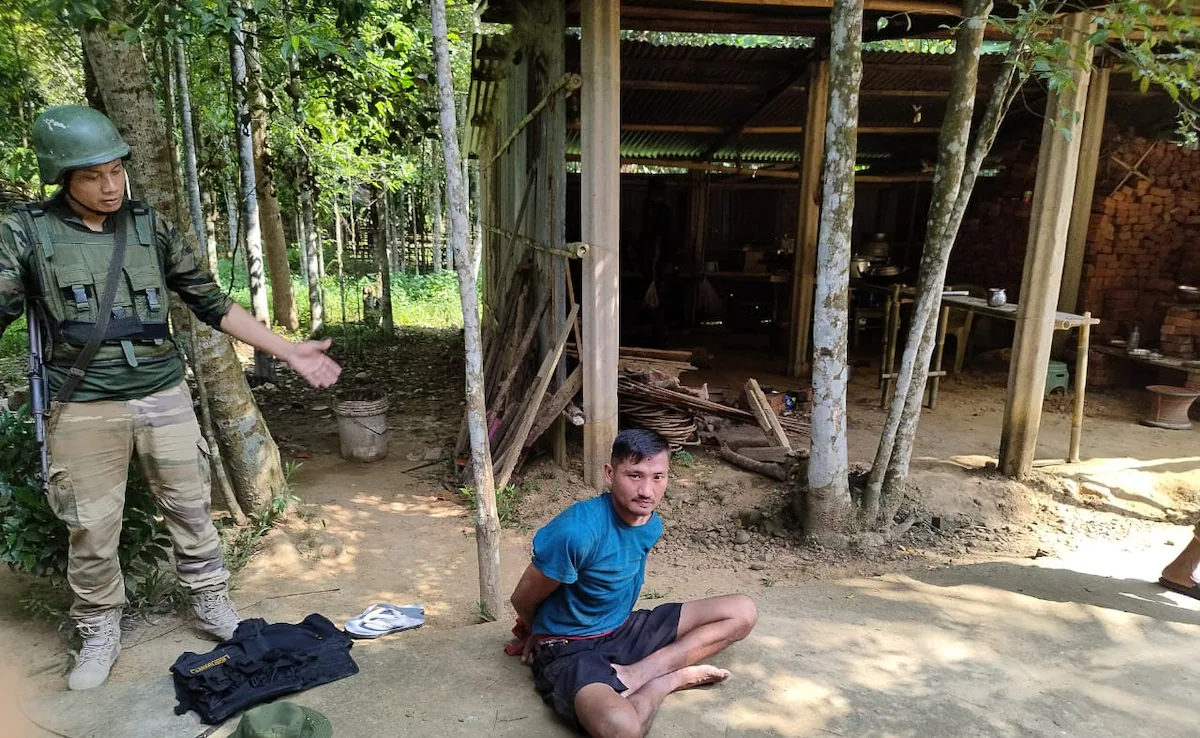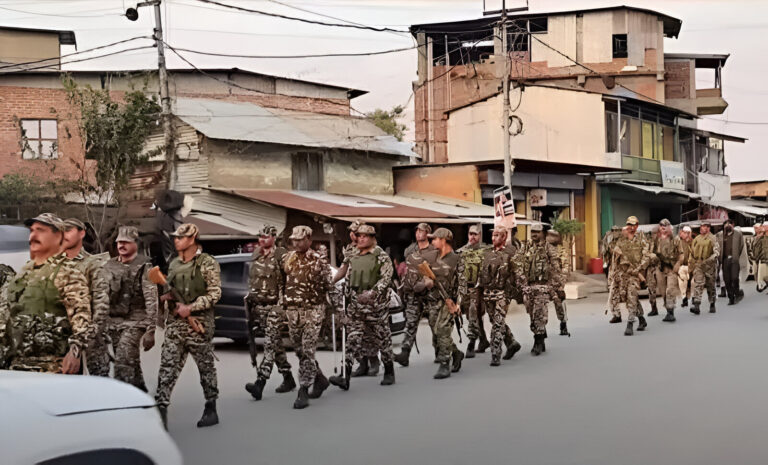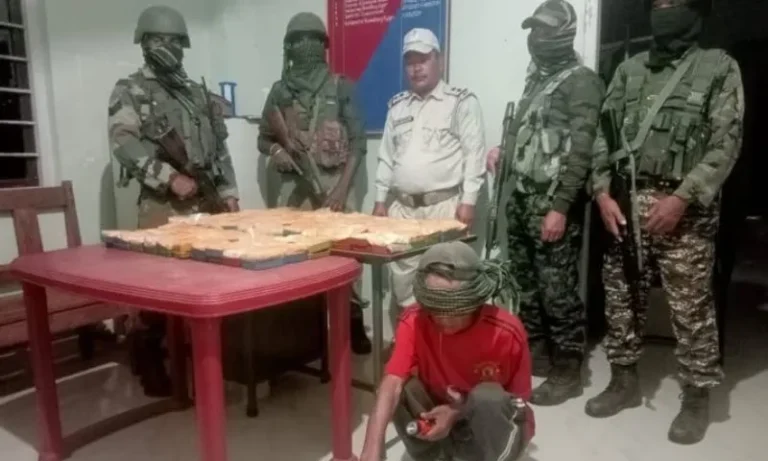Manipur Police Tragedy: Sub-Inspector Shot by Constable in Jiribam
In a situation that has left both the police force and the community in shock, a senior police officer, Sub-Inspector (SI) Md Shah Jahan, lost his life after being shot by a junior colleague in Jiribam, Manipur. The incident occurred during a routine security assignment in Mongbung village, underlining the underlying challenges and tensions faced by police officers in the line of duty. While police officials continue to investigate the circumstances, questions about the incident’s causes and implications remain.
Why Did This Tragic Incident Happen?
Understanding the “why” behind this incident requires delving into the daily stresses and hierarchical pressures within police forces. Law enforcement is, by nature, a high-stakes environment. Officers face pressures not only from external dangers but also from internal demands and power dynamics. Hierarchical structures, long hours, exposure to conflict, and high-stress assignments can all contribute to tensions within the ranks. It’s unclear at this stage what specific grievances or circumstances led the constable to take such drastic action against his superior.
Impact on Manipur’s Law Enforcement and Community
This incident is not just an isolated event but one that impacts the entire law enforcement framework within Manipur. The killing of a police officer by another officer is a rare and troubling development that will likely lead to increased scrutiny over training, personnel relationships, and mental health support within the force. The community, already dealing with local unrest and security issues, faces additional unease as people grapple with the breakdown of trust within those meant to protect them.
A Closer Look: Challenges in the Police Force
1. The Stress and Risks of Policing in Conflict Zones
Police officers in areas of unrest, such as parts of Manipur, face unique challenges. Assigned to protect and serve in unstable environments, they’re often stretched thin and under constant stress. In conflict-prone regions, law enforcement duties can involve dealing with insurgencies, social tensions, and violent confrontations, all of which can take a toll on mental and emotional health.
2. Managing Internal Tensions and Hierarchical Strain
The hierarchical nature of police forces is both a strength and a challenge. While it provides structure, it can also lead to friction between ranks, especially if there are disagreements or misunderstandings. Junior officers might feel their voices are suppressed, while senior officers bear the weight of responsibility and decision-making, sometimes creating a rift in understanding and empathy. Without proper mediation or support systems, small conflicts can grow, leading to serious consequences.
The Importance of Mental Health Support in Law Enforcement
Policing is a demanding job, both physically and mentally. In recent years, the importance of mental health support in law enforcement has come to the forefront, as agencies realize that mental well-being is critical for effective and safe policing. Officers often encounter high-pressure situations, and without a proper outlet or support system, the stress can become overwhelming. This tragic incident may serve as a wake-up call to increase mental health awareness and resources within the Manipur Police.
1. Addressing Mental Health Needs for Officers on Duty
From stress management workshops to counseling services, there are various ways to provide mental health support. However, implementing these services effectively requires resources, commitment, and understanding of the unique pressures police face. Regular check-ins, peer support programs, and a culture of openness about mental health are all steps in the right direction.
2. Creating an Environment of Trust and Communication
Building trust and open lines of communication between different ranks is essential. Officers should feel comfortable expressing concerns or grievances without fear of retribution. This requires a shift in the culture within the force, promoting empathy and understanding across ranks. When officers feel they are supported and understood, they are more likely to cope with stress in a positive manner.
Investigating and Moving Forward: What Happens Next?
Following the incident, an investigation was immediately launched to uncover the details. Authorities are looking into both the personal and professional dynamics between the sub-inspector and the constable, as well as any potential external factors that may have influenced the event. This process may take time, but it is crucial for both transparency and justice.
1. Ensuring Justice and Accountability
A thorough investigation will help bring clarity to this case, ensuring that the actions taken reflect justice and accountability. Whether disciplinary action or procedural changes are needed, the investigation will shape the force’s response and inform future preventative measures.
2. Implementing Reforms Based on Findings
This incident will likely prompt Manipur’s law enforcement to review its protocols and support systems. Implementing reforms based on investigation findings can help prevent similar incidents, protecting officers and restoring community trust. This could include additional training, stricter regulations on conduct, or expanded support for officers’ mental health needs.
Reflections and Takeaways: A Call for Change
The tragic loss of Sub-Inspector Md Shah Jahan highlights a need for change within the police system—not just in Manipur but potentially in law enforcement agencies worldwide. As we wait for the full findings of the investigation, it’s essential to recognize this incident as more than just a tragic anomaly. It’s a signal that the well-being and support systems for police officers are areas that require attention and improvement.
For both the officers and the communities they serve, addressing these internal challenges can lead to a more resilient, trusted, and effective law enforcement environment.
FAQs
- What led to the constable shooting the sub-inspector in Manipur?
The specific motives are still under investigation, but authorities are examining personal and professional factors that could have contributed. - How is the Manipur Police handling this case?
The police have launched a full investigation, including interviews with witnesses and a review of relevant circumstances. - What challenges do police officers face in high-stress regions?
Officers often deal with conflict, long hours, and hierarchical pressures, which can strain mental and emotional well-being. - How can law enforcement support officers’ mental health?
Through programs like stress management workshops, peer support, and open communication channels. - Will this incident lead to reforms within the police force?
The case is expected to prompt reviews of protocols and support systems to help prevent similar incidents in the future.



